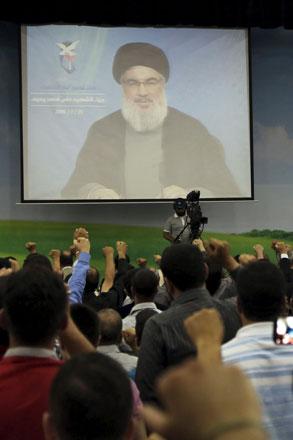You are here
US imposes sanctions on Lebanese man, company for Hizbollah links
By Reuters - Jan 08,2016 - Last updated at Jan 08,2016
WASHINGTON — The United States imposed sanctions on Thursday on Lebanese financier Ali Youssef Charara and his telecommunications company, saying they supported the militant group Hizbollah.
The US action freezes assets of Charara and his company that are in the United States or in the control of Americans, and prohibits Americans from engaging in transactions with them.
The US Treasury Department said Charara, chairman and general manager of Lebanon-based Spectrum Investment Group Holding SAL, has received millions of dollars from Hizbollah to invest in commercial projects that support the group.
Charara and Spectrum, which provides telecommunications services in the Middle East, Africa and Europe, could not be immediately reached for comment.
Hizbollah, the Shiite Islamist political and military group backed by Syria and Iran that wields considerable power in Lebanon, has long been designated as a terrorist organisation by the United States.
"Hizbollah relies upon accomplices in the business community to place, manage and launder its terrorist funds," said Adam Szubin, acting Treasury undersecretary for terrorism and financial intelligence. "We are committed to exposing and disrupting these networks to pressure Hizbollah's finances and degrade its ability to foment violence in Lebanon, Syria and across the region."
Thursday's designations were the first under a strengthened sanctions law passed last month, the Hizbollah International Financing Prevention Act of 2015.
Under the law, foreign institutions that process transactions for Hizbollah or entities linked to the group risk being barred from accessing the US financial system.
"It not only means that American institutions can't do business with those entities... but it also threatens to cut off anybody who continues to provide them services from the US financial system," said Matthew Levitt, a former Treasury official now at the Washington Institute for Near East Policy. "The more designations that come out, the more meat, the more power, the more strength it gives to the legislation."
Similar so-called "secondary" sanctions against foreign companies doing business with Iran were used by the United States to prod Iran into making concessions on its nuclear programme. The US and other world powers reached a deal with Iran last year that would lift those sanctions in return for limits on the nuclear programme.
Related Articles
WASHINGTON — The United States announced sanctions on Monday on Iraqi low-cost airline Fly Baghdad, saying it provided assistance to Iran's
An Israeli strike on Syria killed an Iranian general, Tehran confirmed Monday, as thousands of supporters of Lebanon's Hizbollah gathered to bury one of six fighters killed in the same raid.
BEIRUT — The Lebanese Hizbollah group believes it can still count on Iran's support following Tehran's nuclear deal with world powers, leade

















